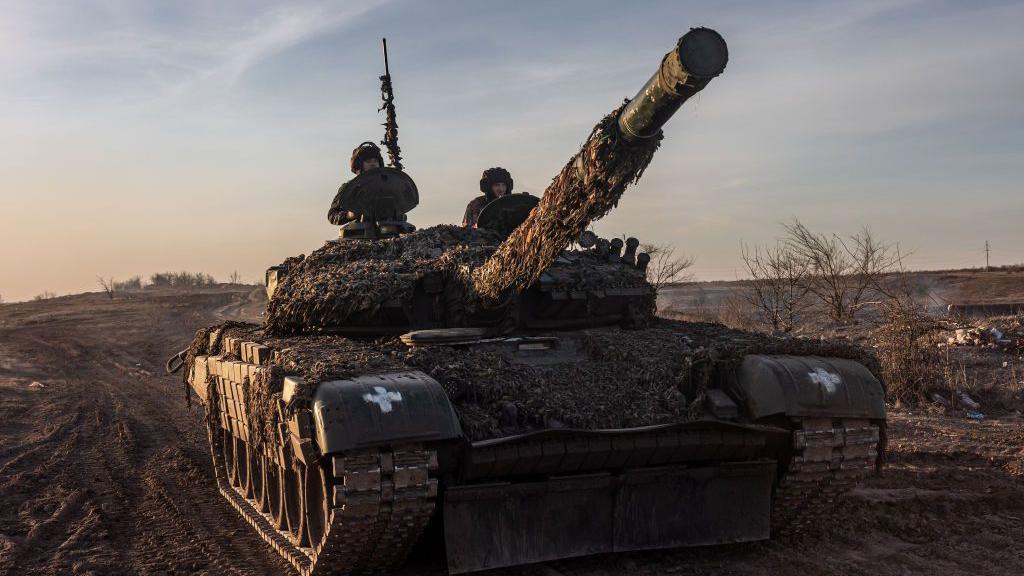EU moves to give profits from Russian assets to Ukraine

- Published
Ambassadors from EU member states have agreed in principle to seize windfall profits from frozen Russian assets to finance arms supplies to Kyiv.
In the wake of Russia's invasion of Ukraine in 2022, EU countries froze hundreds of billions of euros worth of assets.
If the decision is approved at a gathering of EU finance ministers next Tuesday, the interest - worth up to Ôé¼3bn (┬ú2.5bn) per year - will be used to buy weapons for Ukraine.
The European Commission chief, Ursula von der Leyen, said: "There could be no stronger symbol and no greater use for that money than to make Ukraine and all of Europe a safer place to live."
European Trade Commissioner Valdis Dombrovskis also welcomed the decision.
He said the funds would have to get to Ukraine as soon as possible, with the first Ôé¼1bn tranche - to be used "mainly for military support" - ideally reaching the country by summer.
"Russia will pay directly for its crimes," Mr Dombrovskis said.
Earlier this week, German Chancellor Olaf Scholz said around 90% of revenues from frozen Russian should be spent on arms purchases for Ukraine.
The value of frozen Russian assets in the EU alone is estimated to be almost Ôé¼211bn (┬ú181bn).
The majority of the profits from the assets are currently being held in Euroclear, a Belgium-based clearing house.
The expropriation of the profits has been a topic of discussion among EU officials and heads of state since the start of the war.
However, the cash had so far not been used because EU members had objected to a 25% tax imposed under Belgian law. Belgium has now agreed to waive the tax.
Europe's central bankers were also long sceptical about potentially setting a difficult legal precedent that could undermine global financial stability - as well as putting off other countries from placing their safe haven assets in the West.
The Kremlin has previously said that seizing the interest made on frozen Russian assets was a move towards the "destruction of the legal foundations of European law and international law".
Related topics
- Published13 October 2023